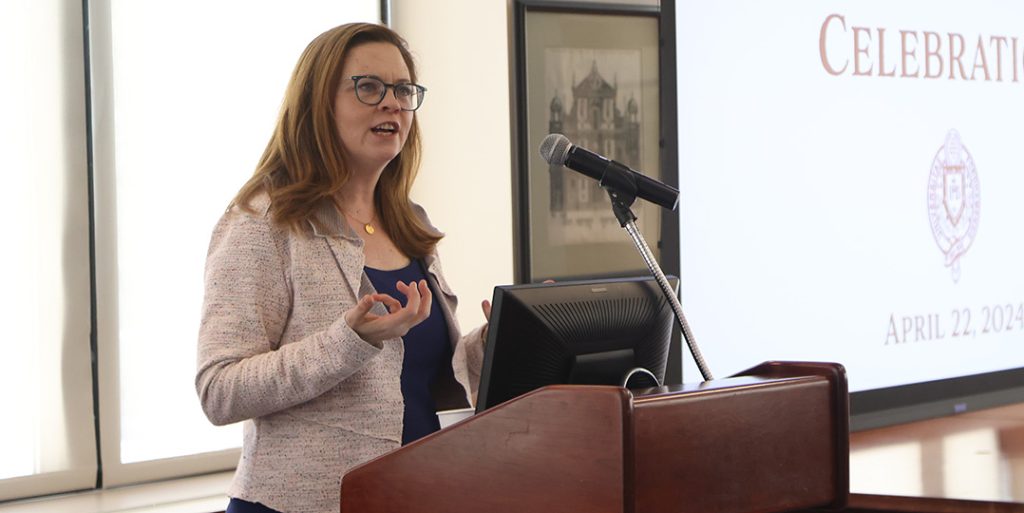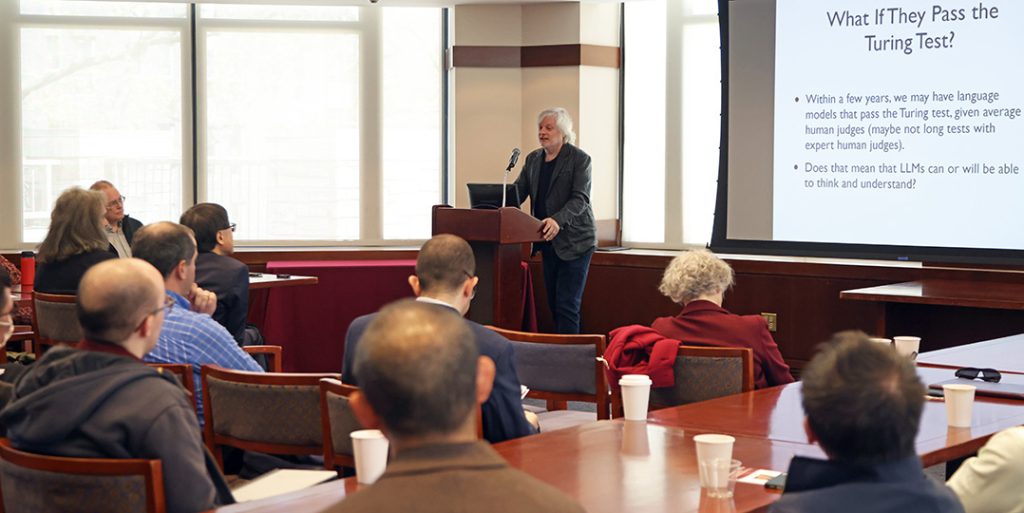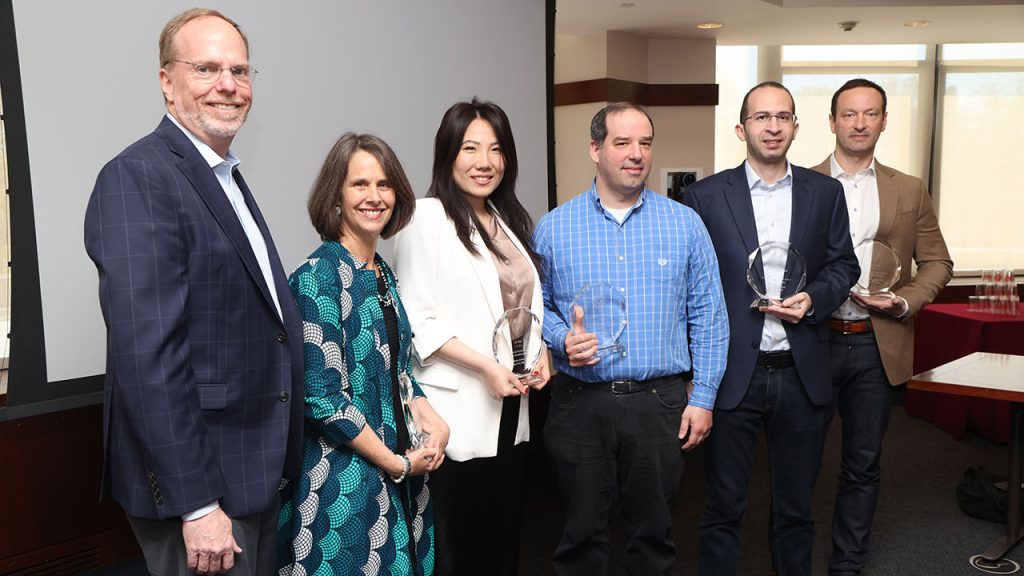Fordham honored five distinguished professors at an April 22 ceremony that celebrated the impact of faculty research and its potential for solving urgent problems facing humanity.
Dozens of faculty, staff, and students gathered at the Walsh Family Library on the Rose Hill campus for the annual Research Day Celebration. In opening remarks, Fordham’s president, Tania Tetlow, invoked several current issues—threats to democracy, artificial intelligence, climate change—in emphasizing the importance of “every insight” that Fordham faculty produce.
“There is so much that you achieve, on behalf of Fordham and on behalf of the world,” she said. “You matter in everything that you do, and you matter even more when you come together across disciplinary silos, when you think about how we can solve problems in ways that will never come from any one discipline and never come from any one way of thinking about the world.”
Fordham’s chief research officer, George Hong, Ph.D., noted a “remarkable achievement” in his introductory remarks: Since the academic year began last July, Fordham has received $34 million in external grant awards, its greatest-ever yearly total and a 40% increase over the amount received by this time last year.
Awards for Distinguished Research
The professors each received a distinguished research award in one of five categories and gave brief remarks. The humanities award went to history professor Kirsten Swinth, Ph.D., for her studies of working families originally inspired by the “mommy wars” in 2004. “I couldn’t believe that it was the 21st century and people were still arguing passionately about whether mothers should be employed,” she said, adding later that she has strived “to illuminate and change the conversation about work and family among scholars and the wider public.”
Christopher Koenigsmann, Ph.D., associate professor of chemistry, received the sciences and mathematics award for his nanotechnology research that’s applicable to renewable energy, biomedical sensors, or technology that scrubs viruses out of indoor air. He credited the undergraduate students who helped with his research. “As they’re learning physical chemistry, they’re also solving problems—real problems—for society,” he said.

Jie Ren, Ph.D., associate professor of information systems in the Gabelli School of Business, received the interdisciplinary studies award for her work on collective online behavior and its impacts across business, social media, and other areas. “Throughout many years of studying this topic, I realized one thing, which is individuals in the crowd need each other to be better,” she said.
The Distinguished Research Award for Junior Faculty went to Mohamed Rahouti, Ph.D., assistant professor in the computer and information science department, for his cybersecurity innovations that draw upon blockchain technology and artificial intelligence. Receiving the award, he said, “inspires me to further my research with even greater dedication and passion.”
The social sciences award went to economics professor Marc Conte, Ph.D., for his work in environmental economics and environmental justice, some of which was cited in the Biden administration’s Economic Report of the President in 2023. “I look forward to continuing my work … in the hope of guiding us toward a more stable and equitable world,” he said.
Can ChatGPT Think?
The event also included presentations by Fordham’s IBM research fellows and interns, and by participants in the University’s Faculty Research Abroad Program. The keynote speaker was David Chalmers, professor of philosophy at New York University, who gave a talk titled “Can ChatGPT Think?”
“It probably doesn’t yet have humanlike thought,” he said toward the end of his talk, “but I think it’s also well on its way.”



